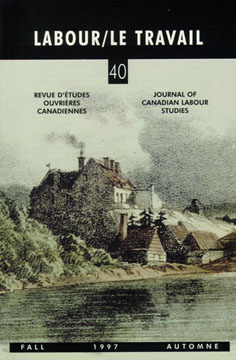Abstract
This study examines the private policing and surveillance tactics adopted by the Roman Catholic Archdiocese of Toronto to prevent the spread of communism, particularly within its congregation. Catholic "spies" and informants kept the Church abreast of communist maneuverings in ethnic communities, religious organizations, and on university campuses. An extensive moral and educational campaign was launched by the Church to create a bulwark against the Reds. These actions highlight the historical role of voluntary organizations in the policing of citizens and the maintenance of national security. Policing is redefined as a phenomenon that operated beyond the exclusive domain of the state. The analysis seeks to introduce a broader notion of national security and policing by examining the interplay between public and private institutions.
Résumé
Cette étude examine les initiatives privées et les stratégies de surveillance mises de l'avant par l'archevêché catholique de Toronto, afin d'empêcher, entre autres, la pénétration du communisme dans ses rangs. Des informateurs et des «espions» catholiques tenaient l'Église au courant des activités communistes auprès des communautés ethniques, des organisations religieuses et du monde universitaire. Une importante campagne d'éducation et de moralisation fut lancée par l'Église afin de créer un rempart contre l'influence des «rouges.» Ces actions mettent en lumière le rôle historique des associations volontaires dans la protection de l'ordre public et le maintien de la sécurité nationale. La gestion de l'ordre public est redéfinie ici comme un phénomène pouvant s'exercer en dehors du champ exclusif de l'État. Cette analyse veut élargir les concepts de sécurité nationale et d'ordre public en examinant l'interaction entre le privé et le public.
